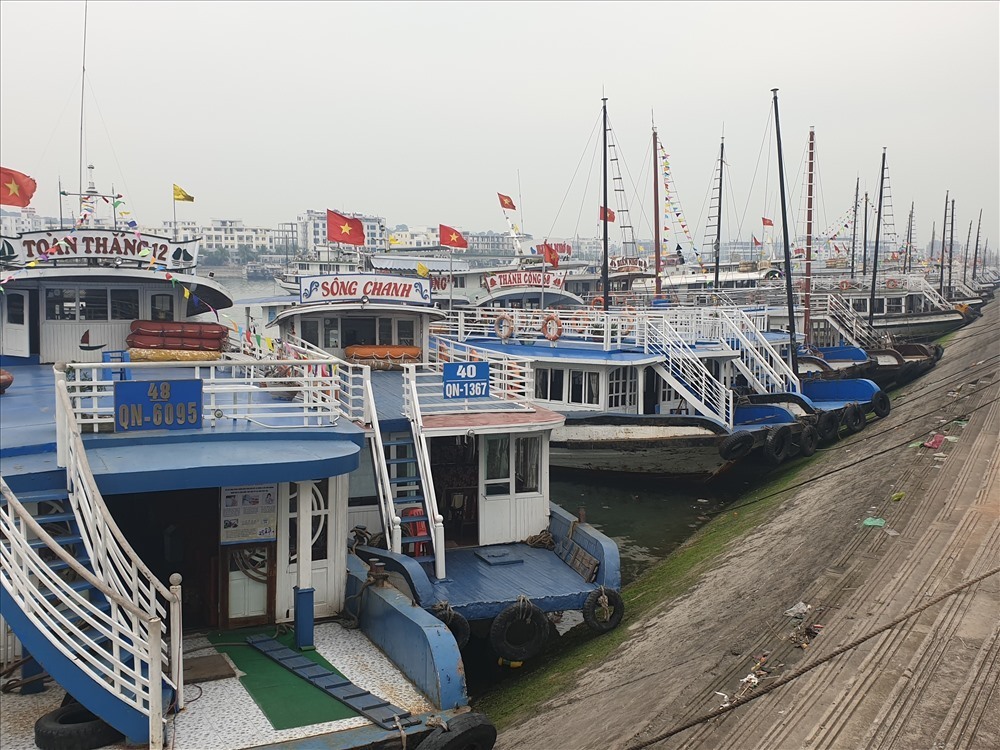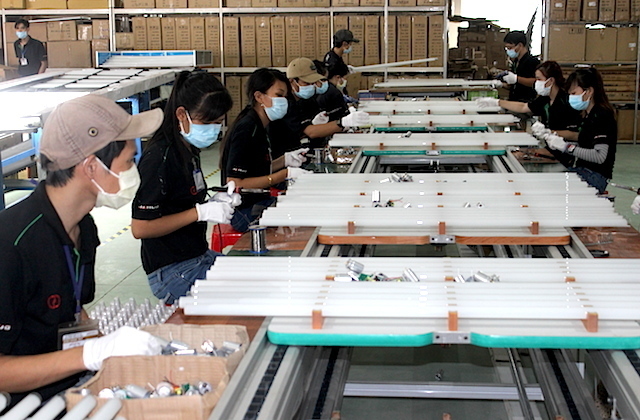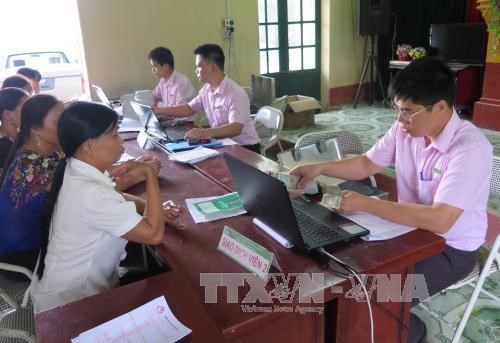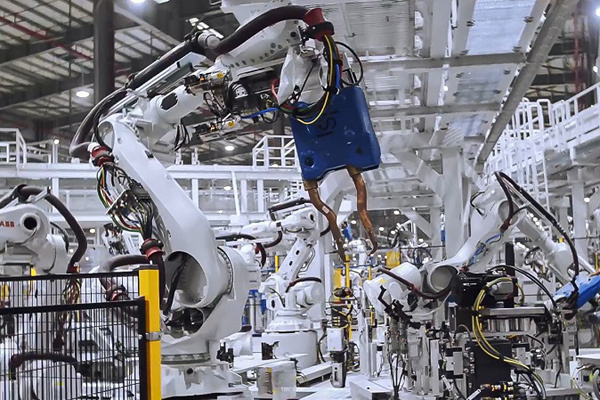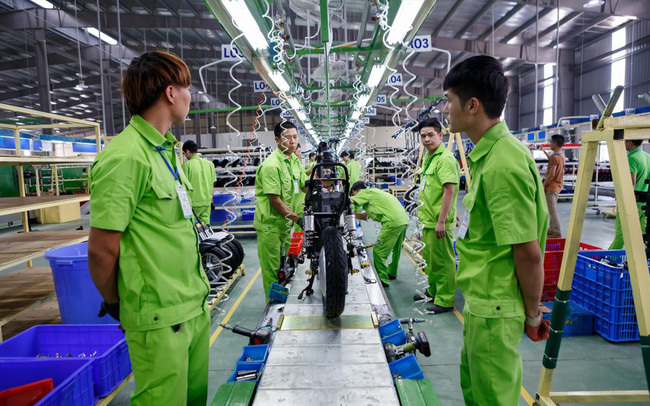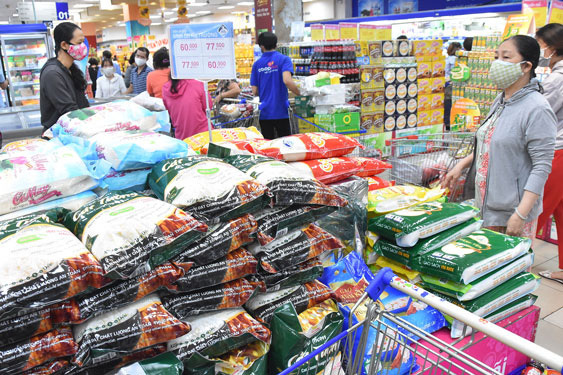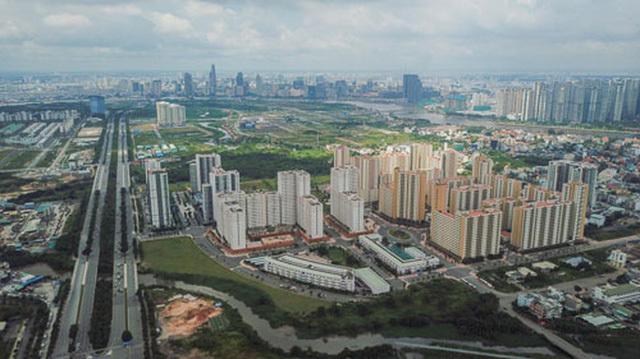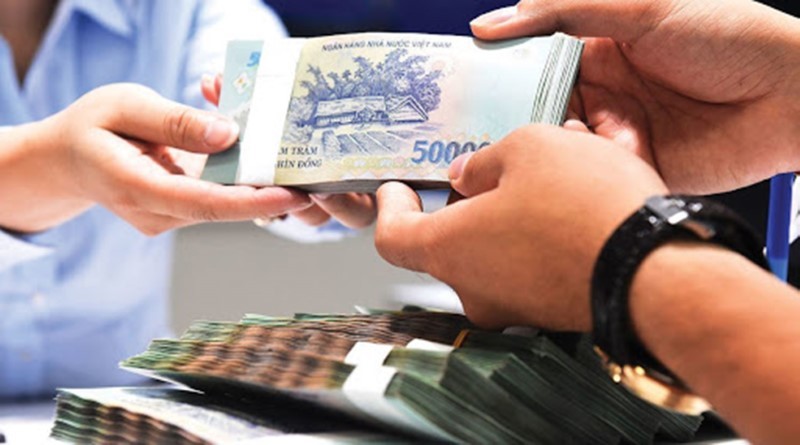- © Copyright of Vietnamnet Global.
- Tel: 024 3772 7988 Fax: (024) 37722734
- Email: [email protected]
preferential loans
Update news preferential loans
Pandemic-hit workers anxiously wait for aid
According to statistics of the Ministry of Labor, Invalids and Social Affairs, up to 12.8 million Vietnamese people aged 15 and older were negatively affected by the Covid-19 epidemic in the second quarter of 2021.
Businesses look forward to state bailout after fourth Covid outbreak
Businesses have once again shouted for help as they are coming closer to bankruptcy because of the fourth Covid-19 outbreak.
Hard-hit bsinesses still paying high interest on loans
The latest Covid-19 outbreak has pushed enterprises into new difficulties at a time when it is nearly impossible to access cheap capital sources.
Over 6.4 million poor households access social policy bank loans
As of March, more than 6.4 million poor and near-poor households had won access to loans from the Vietnam Bank for Social Policies (VBSP).
Businesses lose customers, run out of money, lay off workers
Poor sales, supply chain disruptions, revenue decreases and personnel cuts have all occurred to enterprises amid the Covid-19 pandemic.
Why it’s tough for lending rates to go lower
This year, commercial banks have so far revised down many times their deposit and lending rates. However, lending rates are thought to be high. Why are these rates difficult to be further slashed?
Local banks warn they may become ‘hostage’ of businesses
 If large businesses cannot pay their debts, they may put pressure on banks to lower requirements for loans.
If large businesses cannot pay their debts, they may put pressure on banks to lower requirements for loans.
Consumer lending expected to rise in Vietnam after Covid-19
 The number of borrowers is expected to increase, but this also poses higher risks for finance companies.
The number of borrowers is expected to increase, but this also poses higher risks for finance companies.
Old barriers prevent Covid-19-hit businesses from accessing preferential loans
 Small enterprises complain they cannot access the preferential lending program, while banks say hundreds of trillions of dong are ready for disbursement.
Small enterprises complain they cannot access the preferential lending program, while banks say hundreds of trillions of dong are ready for disbursement.
VN supporting firms need better policies to help them recover
 The policies on supporting businesses have been designed well, but the support is not enough to help businesses recover losses, economists say.
The policies on supporting businesses have been designed well, but the support is not enough to help businesses recover losses, economists say.
Banks say money plentiful, but many businesses not borrowing
 The State Bank of Vietnam (SBV) reported that as of the end of May, credit had grown by 1.96 percent compared with the end of 2019, lower than the 5.74 percent of the same period last year.
The State Bank of Vietnam (SBV) reported that as of the end of May, credit had grown by 1.96 percent compared with the end of 2019, lower than the 5.74 percent of the same period last year.
In Vietnam, M&A 'wave' strong in Covid-19 crisis
 Many companies have been sold during the COVID-19 crisis due to lack of capital and longterm financial durability.
Many companies have been sold during the COVID-19 crisis due to lack of capital and longterm financial durability.
VND16 trillion credit package inaccessible to businesses
 The Vietnam Bank for Social Policies (VBSP) is ready to disburse VND16 trillion for enterprises that need money to pay to workers. But none of them have accessed the package.
The Vietnam Bank for Social Policies (VBSP) is ready to disburse VND16 trillion for enterprises that need money to pay to workers. But none of them have accessed the package.
Vietnamese enterprises encouraged to focus on home market
 Focusing on the home market is one of the important solutions that will help enterprises restore production and business after Covid-19 ends, experts say.
Focusing on the home market is one of the important solutions that will help enterprises restore production and business after Covid-19 ends, experts say.
Vietnamese banking system sees big changes
 Private banks that can satisfy the requirements on capital adequacy ratio (CAR) now have great opportunities to obtain bigger market share.
Private banks that can satisfy the requirements on capital adequacy ratio (CAR) now have great opportunities to obtain bigger market share.
Vietnamese fear loss of strong local brands
 Businesspeople have called on the government to take measures to control foreign capital and prevent foreign investors from acquiring local strong brands and Vietnamese enterprises in important business fields.
Businesspeople have called on the government to take measures to control foreign capital and prevent foreign investors from acquiring local strong brands and Vietnamese enterprises in important business fields.
Businesses can't access loans, banks see slow credit growth
 Businesses are expecting interest rates to continue to fall, while banks’ credit growth continues to stand still or declines because of low credit demand.
Businesses are expecting interest rates to continue to fall, while banks’ credit growth continues to stand still or declines because of low credit demand.
Covid-19’s impact on banking sector quantified
 Many commercial banks have had to reduce operation costs and adjust business plans.
Many commercial banks have had to reduce operation costs and adjust business plans.
State-owned banks told to sacrifice profits to support businesses
 Deputy Governor of the State Bank Dao Minh Tu said at a conference between the Prime Minister and ministries’ leaders that state-owned banks will have to sacrifice 30-40 percent of profit to help businesses cope with Covid-19.
Deputy Governor of the State Bank Dao Minh Tu said at a conference between the Prime Minister and ministries’ leaders that state-owned banks will have to sacrifice 30-40 percent of profit to help businesses cope with Covid-19.
VN banks change key personnel, cut wages and bonuses
 Banks have cut wages of high-ranking executives to cope with the effects of Covid-19.
Banks have cut wages of high-ranking executives to cope with the effects of Covid-19.

